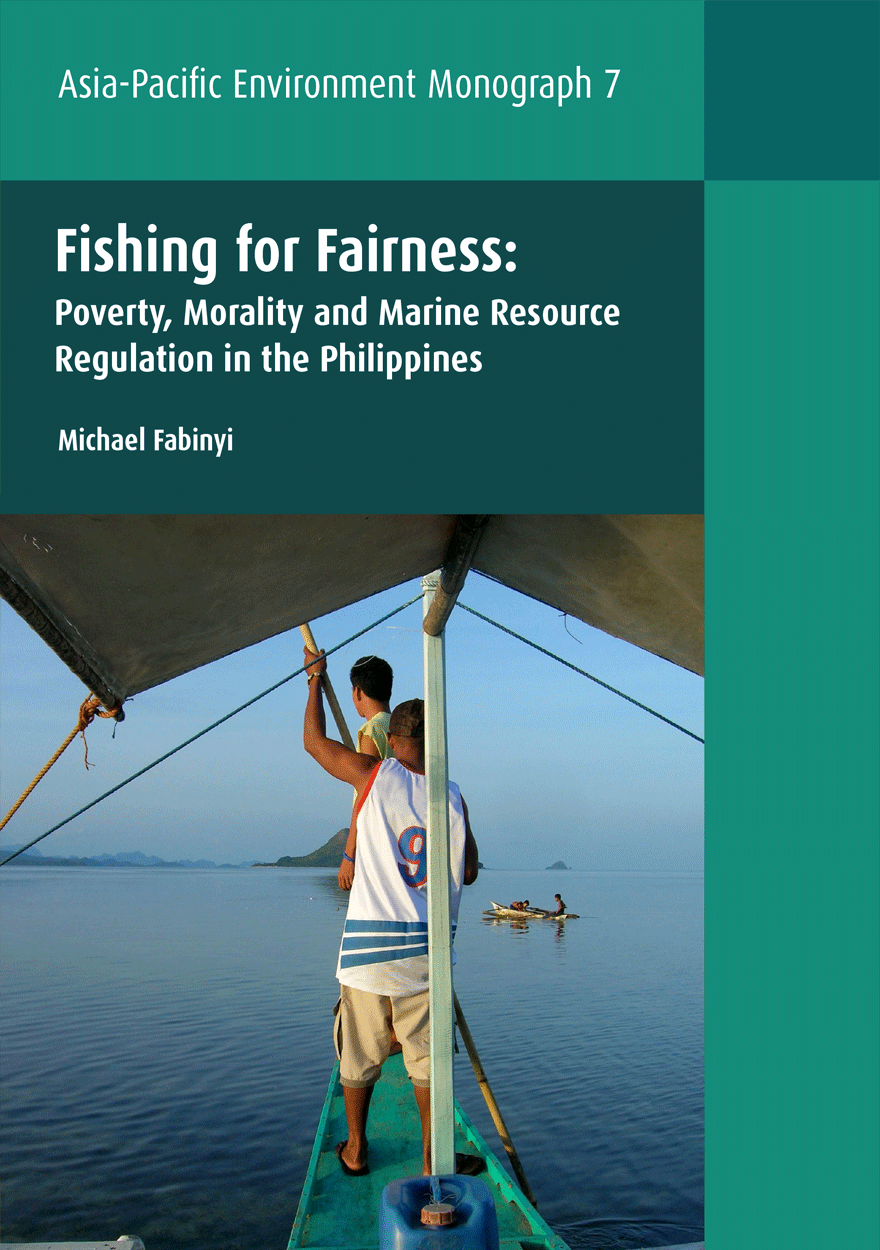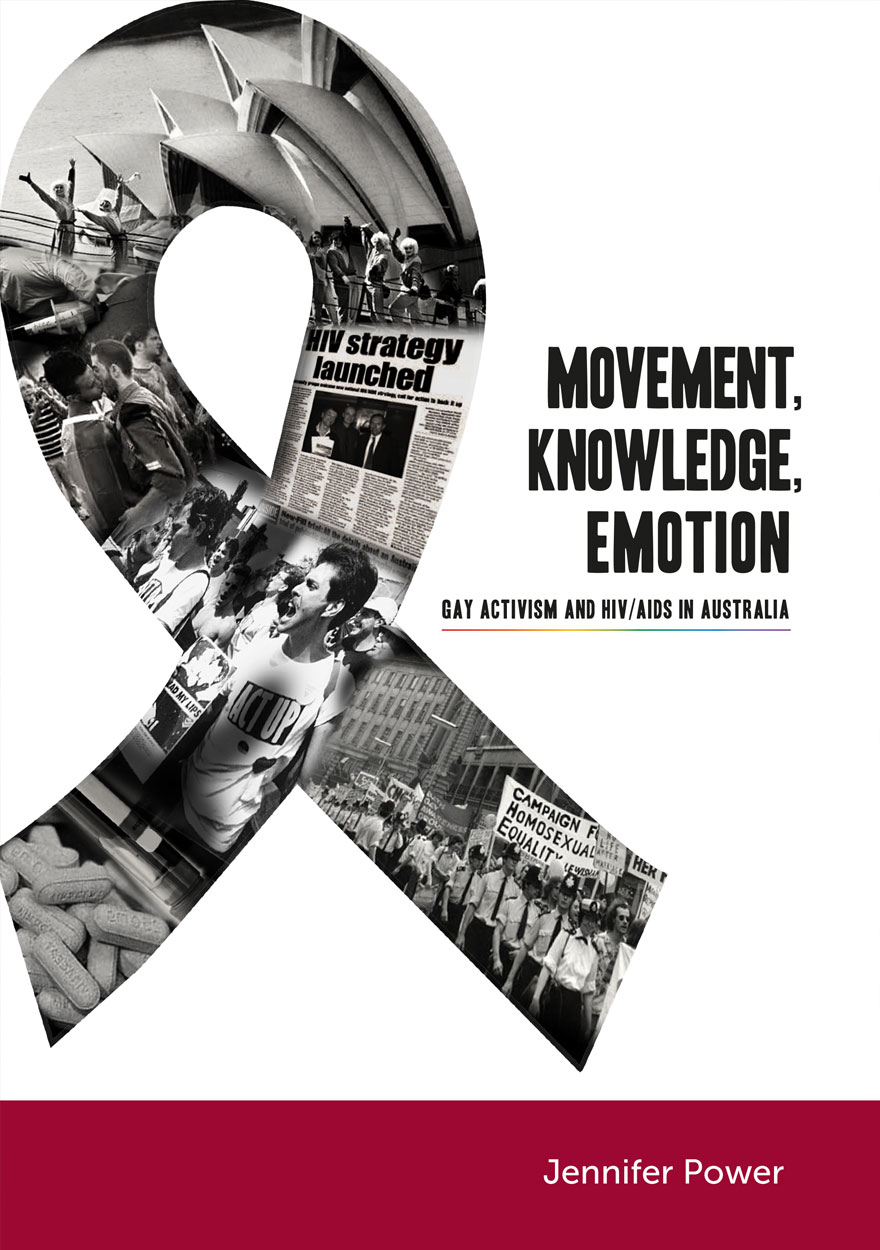Search titles
Displaying results 211 to 220 of 358.

Fishing for Fairness »
Poverty, Morality and Marine Resource Regulation in the Philippines
Authored by: Michael Fabinyi
Publication date: January 2012
Fishing for Fairness develops an explicitly cultural perspective on environmental politics in the Philippines by analysing the responses of fishers to marine resource regulations. In the resource frontier of the Calamianes Islands, fishing, conservation and tourism provide the context where competing visions of how to engage with marine resources are played out. The book draws on data from ethnographic fieldwork with fishers, government and NGO officials, fish traders and tourism operators to show how the strategic responses of fishers to management initiatives are couched within particular cultural idioms. Tapping into broader notions of morality in the Philippines, fishers express a discourse that emphasises their poverty and the obligations of the wealthy to treat them with fairness. By deploying this discourse, fishers are able to reframe what are—on the surface—questions of environmental management into issues about poverty within particular social relationships. By using a cultural political ecology framework to analyse fishers’ responses to regulation, the book emphasises the distinctive ways in which marginalised people in the Philippines resist and reframe resource management initiatives. Fishing for Fairness will appeal to both academics and policy makers interested in marine resource management, political ecology, anthropology and development studies particularly throughout the Asia-Pacific.

Reaching for Health »
The Australian women’s health movement and public policy
Authored by: Gwendolyn Gray Jamieson
Publication date: January 2012
The women’s health movement shocked and scandalised when it burst into Australian politics in the early 1970s. It cast the light of day onto taboo subjects such as sexual assault, abortion and domestic violence, provoking outrage and condemnation. Some of the services women created for themselves were subjected to police raids; sex education material was branded ‘indecent’. Moreover, women dared to criticise revered institutions, such as the medical system. Yet for all its perceived radicalism, the movement was part of a much broader and relatively conventional international health reform push, which included the ‘new’ public health movement, the community health centre movement and, in Australia, the Aboriginal health movement, all of which were critical of the way medical systems had been organised during the 20th century. The women who joined the movement came from diverse backgrounds and included immigrant and refugee women, Aboriginal women and Anglo women. Initially, groups worked separately for the most part but as time went on, they found ways to cooperate and collaborate. This book presents an account of the ideas, the diverse and shared efforts and the enduring hard work of women’s health activists, drawn together in one volume for the first time. This relentless activism gradually had an impact on public policy and slowly brought forth major attitudinal changes. The book also identifies the opportunities for health reform that were created along the way, opportunities which deserve to be more fully embraced.

Business and the Risk of Crime in China »
Authored by: Roderic Broadhurst, John Bacon-Shone, Brigitte Bouhours, Thierry Bouhours
Publication date: December 2011
The book analyses the results of a large scale victimisation survey that was conducted in 2005–06 with businesses in Hong Kong, Shanghai, Shenzhen and Xi’an. It also provides comprehensive background materials on crime and the criminal justice system in China. The survey, which measured common and non-conventional crime such as fraud, IP theft and corruption, is important because few crime victim surveys have been conducted with Chinese populations and it provides an understanding of some dimensions of crime in non-western societies. In addition, China is one of the fastest-growing economies in the world and it attracts a great amount of foreign investment; however, corruption and economic crimes are perceived by some investors as significant obstacles to good business practices. Key policy implications of the survey are discussed.

East Asia Forum Quarterly: Volume 3, Number 4, 2011 »
Publication date: December 2011
East Asia Forum Quarterly grew out of East Asia Forum (EAF) online, which has developed a reputation for providing a platform for the best in Asian analysis, research and policy comment on the Asia Pacific region in world affairs. EAFQ aims to provide a further window onto research in the leading research institutes in Asia and to provide expert comment on current developments within the region. The East Asia Forum Quarterly, like East Asia Forum online, is an initiative of the East Asia Forum (EAF) and its host organisation, the East Asian Bureau of Economic Research (EABER) in the Crawford School of Economics and Government in the College of Asia & the Pacific at The Australian National University.
Download for free
Not available for purchase

Agenda - A Journal of Policy Analysis and Reform: Volume 18, Number 3, 2011 »
Edited by: William Coleman
Publication date: December 2011
Agenda is a refereed, ECONLIT-indexed and RePEc-listed journal of the College of Business and Economics, The Australian National University. Launched in 1994, Agenda provides a forum for debate on public policy, mainly (but not exclusively) in Australia and New Zealand. It deals largely with economic issues but gives space to social and legal policy and also to the moral and philosophical foundations and implications of policy.
Subscribe to the Agenda Alerting service if you wish to be advised on forthcoming or new issues.
Download for free
Not available for purchase

Security and Privacy »
Global Standards for Ethical Identity Management in Contemporary Liberal Democratic States
Authored by: John Kleinig, Peter Mameli, Seumas Miller, Douglas Salane, Adina Schwartz
Publication date: December 2011
This study is principally concerned with the ethical dimensions of identity management technology – electronic surveillance, the mining of personal data, and profiling – in the context of transnational crime and global terrorism. The ethical challenge at the heart of this study is to establish an acceptable and sustainable equilibrium between two central moral values in contemporary liberal democracies, namely, security and privacy. Both values are essential to individual liberty, but they come into conflict in times when civil order is threatened, as has been the case from late in the twentieth century, with the advent of global terrorism and trans-national crime.
We seek to articulate legally sustainable, politically possible, and technologically feasible, global ethical standards for identity management technology and policies in liberal democracies in the contemporary global security context. Although the standards in question are to be understood as global ethical standards potentially to be adopted not only by the United States, but also by the European Union, India, Australasia, and other contemporary liberal democratic states, we take as our primary focus the tensions that have arisen between the United States and the European Union.

Law's Anthropology »
From ethnography to expert testimony in native title
Authored by: Paul Burke
Publication date: November 2011
Anthropologists have been appearing as key expert witnesses in native title claims for over 20 years. Until now, however, there has been no theoretically-informed, detailed investigation of how the expert testimony of anthropologists is formed and how it is received by judges. This book examines the structure and habitus of both the field of anthropology and the juridical field and how they have interacted in four cases, including the original hearing in the Mabo case. The analysis of background material has been supplemented by interviews with the key protagonists in each case. This allows the reader a unique, insider’s perspective of the courtroom drama that unfolds in each case. The book asks, given the available ethnographic research, how will the anthropologist reconstruct it in a way that is relevant to the legal doctrine of native title when that doctrine gives a wide leeway for interpretation on the critical questions: what is the relevant grouping, what can be counted as a traditional law and when has there been too much change of tradition? How will such evidence be received by judges who are becoming increasingly sceptical about experts tailoring their evidence to suit the party which called them? This book answers these questions by assuming that there is more at stake here than the mere performance of roles. Rather, there is a complex interaction of distinct social fields each with its own habitus, and individual actors are engaged in an active and constructive agency, however subtle, which the painstaking research for this book uncovers.

Agenda - A Journal of Policy Analysis and Reform: Volume 18, Number 2, 2011 »
Edited by: William Coleman
Publication date: November 2011
Agenda is a refereed, ECONLIT-indexed and RePEc-listed journal of the College of Business and Economics, The Australian National University. Launched in 1994, Agenda provides a forum for debate on public policy, mainly (but not exclusively) in Australia and New Zealand. It deals largely with economic issues but gives space to social and legal policy and also to the moral and philosophical foundations and implications of policy.
Subscribe to the Agenda Alerting service if you wish to be advised on forthcoming or new issues.
Download for free
Not available for purchase

Working Together in Vanuatu »
Research Histories, Collaborations, Projects and Reflections
Edited by: John Taylor, Nick Thieberger
Publication date: October 2011
This collection is derived from a conference held at the Vanuatu National Museum and Cultural Centre (VCC) that brought together a large gathering of foreign and indigenous researchers to discuss diverse perspectives relating to the unique program of social, political and historical research and management that has been fostered in that island nation. While not diminishing the importance of individual or sole-authored methodologies, project-centered collaborative approaches have today become a defining characteristic of Vanuatu’s unique research environment. As this volume attests, this environment has included a dynamically wide range of both ni-Vanuatu and foreign researchers and related research perspectives, most centrally including archaeologists and anthropologists, linguists, historians, legal studies scholars and development practitioners. This emphasis on collaboration has emerged from an ongoing awareness across Vanuatu’s research community of the need for trained researchers to engage directly with pressing social and ethical concerns, and out of the proven fact that it is not just from the outcomes of research that communities or individuals may be empowered, but also through their modes and processes of implementation, as through the ongoing strength and value of the relationships they produce. With this in mind, the papers presented here go beyond the mere celebration of collaboration by demonstrating Vanuatu’s specific environment of cross-cultural research as a diffuse set of historically emergent methodological approaches, and by showing how these work in actual practice.

Movement, Knowledge, Emotion »
Gay activism and HIV/AIDS in Australia
Authored by: Jennifer Power
Publication date: September 2011
This book is about community activism around HIV/AIDS in Australia. It looks at the role that the gay community played in the social, medical and political response to the virus. Drawing conclusions about the cultural impact of social movements, the author argues that AIDS activism contributed to improving social attitudes towards gay men and lesbians in Australia, while also challenging some entrenched cultural patterns of the Australian medical system, allowing greater scope for non-medical intervention into the domain of health and illness. The book documents an important chapter in the history of public health in Australia and explores how HIV/AIDS came to be a defining issue in the history of gay and lesbian rights in Australia.



